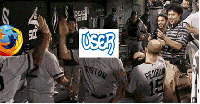Basic Security Guide (no, no antivirus included)
-
Topics
-
0
-
1
-
TPhill110 ·
Posted in CPUs, Motherboards, and Memory1 -
Mozametweakin ·
Posted in New Builds and Planning0 -
Fat Cat11997 ·
Posted in Programs, Apps and Websites0 -
7
-
cbrngrz ·
Posted in Home Theater Equipment2 -
Brass5226 ·
Posted in LTTStore.com Merch1 -
1
-
sophietlav ·
Posted in New Builds and Planning0
-
-
play_circle_filled

Latest From Linus Tech Tips:
He Spent 3 YEARS Begging me for a PC. Good Luck Finding it!


.png.255947720031a641abdac78e663b681c.png)















Create an account or sign in to comment
You need to be a member in order to leave a comment
Create an account
Sign up for a new account in our community. It's easy!
Register a new accountSign in
Already have an account? Sign in here.
Sign In Now